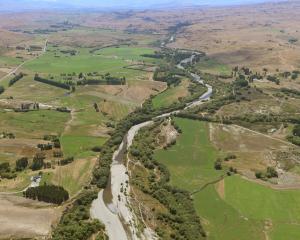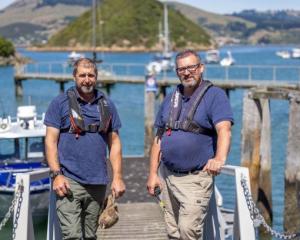At their first meeting of the new term, in Dunedin yesterday, councillors signed off on a proposal to go paperless and receive all their agendas digitally on an iPad.
Chairman Stephen Woodhead asked for, and received, endorsement for a proposal to supply each of the 12 councillors with an iPad and a printer.
Director of corporate services Wayne Scott said the council would purchase the equipment at a cost of about $15,000, which would be offset by savings in labour, printing, paper and courier costs.
He had not worked out how much it was costing ratepayers to provide the council with printed documents for its various meetings.
The equipment will remain in the ownership of the city.
Council chief executive Peter Bodeker said he already used an iPad, and the directors of council departments would likely also be furnished with the devices. Councillors will receive the devices in the new year, after security and IT support infrastructure are in place.
From then, all agendas, reports and other items will be send to councillors electronically.
The documents will also be available online and electronically to the public.
Councillors can choose to either print the documents or make notes and marks on the digital copies using a special programme supplied on the tablet.
Mr Woodhead said the idea was to save money, have councillors be more mobile and able to access and send emails and have more efficient and consistent distribution of documents.
Councillors had a workshop on going mobile at the end of the last term, and had generally agreed to the idea, he said.
Some councillors yesterday expressed concern about how they would cope with the new system, given some of them were not used to working on tablets, but they were reassured by Mr Woodhead, who said there would be a ''phasing-in'' period, with plenty of support from the council's IT staff.
Training sessions would be provided over the first six months.
The Clutha District Council sent out its agendas and documents to councillors on council tablets for much of the last term, and
Central Otago district councillors started using tablets at the beginning of this term.
At the meeting, the ORC councillors also endorsed a new councillor committee structure and adopted the maximum rates allowable for vehicle mileage, although Gerry Eckhoff raised his concern that there was a grey area around what was ''council business'', which was covered, and ''constituency-related'' travel, which was not.
A proposal from Doug Brown to ask staff to investigate options for reviewing remuneration levels set by the remuneration authority and agreed by the council last term, was passed by the council, although opposed by councillors Michael Deaker and David Shepherd, who said it was ''rather distasteful'' to revisit the issue after the salaries had already been agreed.












